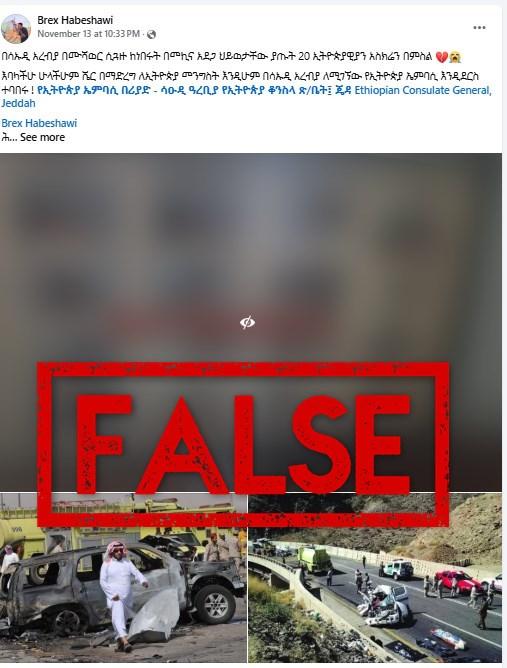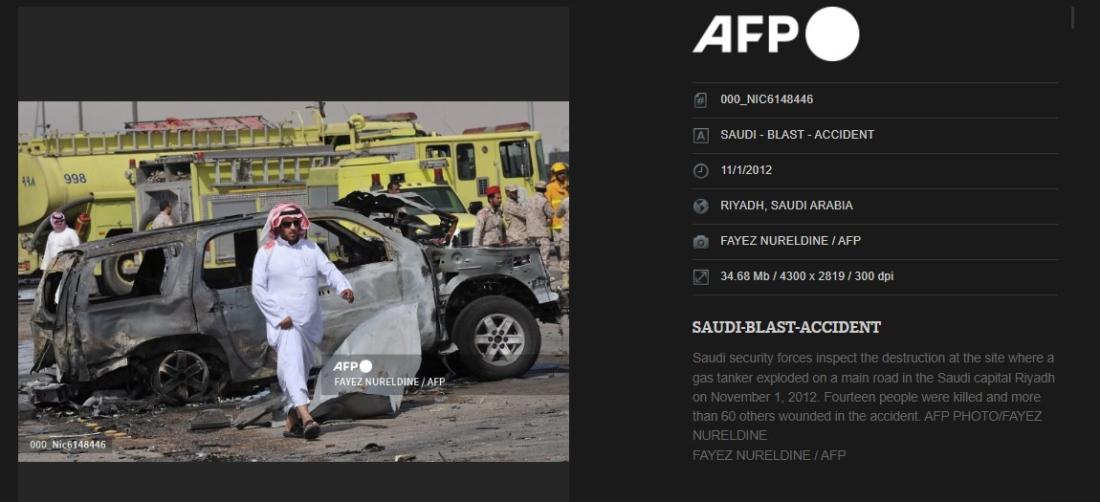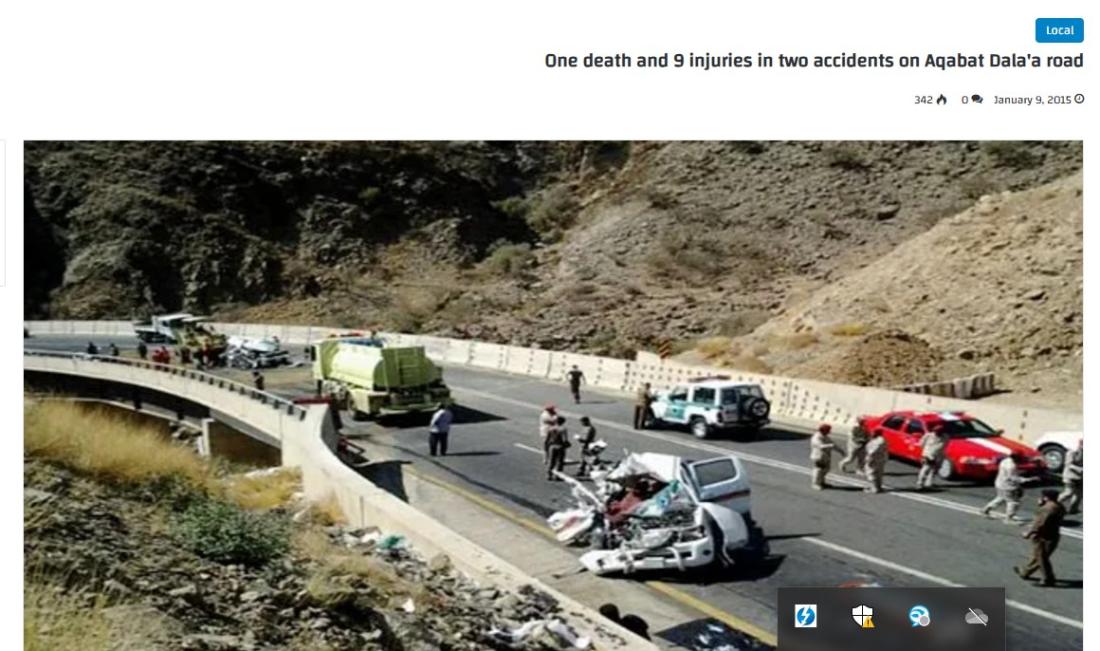
Posts use old photos to falsely claim 20 Ethiopians died in Saudi Arabian bus crash
- This article is more than one year old.
- Published on November 28, 2024 at 11:37
- 3 min read
- By Tolera FIKRU GEMTA, AFP Ethiopia
“Pictures depict twenty Ethiopians killed in car accident in Saudi Arabia while travelling by Mashaer,” says the Amharic post published on November 13, 2024 and shared more than 600 times.
Located in Saudi Arabia, Kayan Al-Mashaer is a bus company that was founded to transport pilgrims to the country’s holy sites (archived here).

The post contains three pictures: the first shows a gallery of the purported victims after they died, while the second and third were taken at the scenes of what appear to be separate car crashes.
A similar post, shared more than 70 times, was also shared here on Facebook.
Ethiopian migrants
Ethiopian migrants who travel to Saudi Arabia and other Gulf states in search of a better life and to flee conflict have died tragically during their perilous journeys.
AFP has reported here and here about Ethiopians and other migrants from the Horn of Africa who died when their boats capsized (archived here and here).
Saudi’s holy sites also attract travellers. According to Ethiopia’s Supreme Council of Islamic Affairs, 15,000 Ethiopians were set to participate in the popular Hajj and Umrah pilgrimages in Saudi Arabia in 2023 (archived here).
However, the claims about 20 Ethiopians dying in a terrible bus crash in Saudi Arabia in 2024 are false.
Old photos
AFP Fact Check conducted reverse image searches and found that two of the photos show vehicle collisions — one that occurred nearly a decade ago and another three years earlier.
Search results for one of the photos reveal that it shows a fuel truck crash that killed 22 people in Saudi Arabia’s capital Riyadh on November 1, 2012 (archived here).
It was among a gallery of photos by AFP, which were taken by photographer Fayez Nureldine.

The photo’s caption describes Saudi security forces inspecting the crash site.
A second crash scene image used in the false post was published by an Arabic news website on January 9, 2015. “One death and 9 injuries in two accidents on Aqabat Dala’a road,” reads the headline translated into English (archived here).

There was no mention in any of the reporting about the nationalities of those who died in either incident.
It was also used by the Saudi Gazette as an illustration in a news article about annual traffic accidents in June 2019 (archived here).
Search results failed to yield the source of the third image – blurred by Facebook under its community standards policy on violent pictures – which purportedly shows the victims of the non-existent bus crash.
An English tag on the graphic image reads “Brex Habeshawi” — which is simply the name of the Facebook account that published the post.
No recent tragedy
Keyword searches on Google for combinations of the keywords “Ethiopians killed in a car accident in Saudi Arabia in November 2024” were also fruitless.
AFP reporters in Riyadh confirmed there was no major traffic accident in Saudi Arabia on November 13, 2024, as claimed.
The last major catastrophe on the country’s roads occurred on March 23, 2023 when a bus ferrying pilgrims to the holy city of Mecca crashed in the southern province of Asir, killing 20 people (archived here).
An AFP report quoted officials as saying the victims had “different nationalities” but these were not specified.
AFP Fact Check has previously debunked hoax claims about road accidents here and here.
Copyright © AFP 2017-2026. Any commercial use of this content requires a subscription. Click here to find out more.
Is there content that you would like AFP to fact-check? Get in touch.
Contact us
